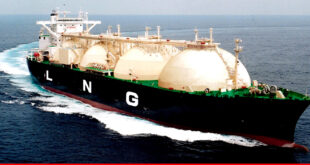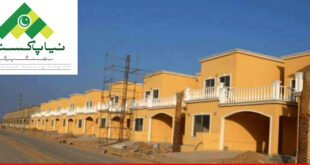Cement export to Afghanistan declined by 58 percent
Despite earnest support to Afghan economy besides offering tariff free transit trade, the export of different commodities required for infrastructure development are on the decline to such an extent that the export of cement, the basic need for development, has declined by 58 percent to Afghanistan. Although the reasons for declining exports are being attributed to the withdrawal of NATO forces from Afghanistan in 2014 as they must be preparing to leave yet it seems a matter of concern that even after NATO forces departure the development process has to be continued for the much needed development in Afghanistan.
Besides the declining trend in cement exports, the cement industry also feeling the pinch of what they called the unfriendly policies towards cement industry, which also affecting the dispatch to the domestic market.
The cement industry as well as other industries allied to construction industry, however, need to have a little patience as Pakistan is well poised for a massive development especially in the infrastructure and property development with the turnaround of the national economy which seems quite on the corner.
The industry circles, however, feel that after posting healthy dispatches of three million tons plus in previous four months, the new fiscal year started on a sour note for the cement sector as it struggled to stay afloat amid political uncertainty, unkind government policies in domestic markets and lowering demand in its export markets.
Cement dispatches to domestic markets during the month of July 2014 were 1.73 million tons compared with 1.85 million tons during same month last year showing a decline of 6.52 percent. Exports during July 2014 were 503,000 tons against 749,000 tons during July 2013 showing reduction of 32.89 percent. Total dispatches during July 2014 were only 2.23 million tons compared to 2.6 million tons during same month last year showing a decline of 14.12 percent.
The worse export performance was mainly attributed to reduction in quantities to Afghanistan where against exports of 441,812 tons in July last year, the exports reduced to 183,927 tons in July this year. According to industry experts, this trend is likely to continue in coming months as NATO forces prepare to leave Afghanistan.
The massive decline of over 58 percent of exports to Afghanistan according to industry experts also indicate declining competitiveness of the commodity in the global market where other regional players like Iran are making business inroads. The duty on imported coal has further put pressure on cost of business after massive hikes in power and energy tariffs, the industry circle added.
The cement plants located in south showed better performance in exports as the exports from south mainly through sea suffered a loss of only 7.2 percent while the exports from north declined by massive 43.8 percent. However, in the domestic market, the decline in cement uptake from north was restricted to 5.9 percent against a decline of 9.1 percent in the south. This according to experts depicts slow down in construction activities partly due to monsoon and partly to uncertain political climate.
A spokesman of All Pakistan Cement Manufacturers Association (APCMA) pointed out that the issues impacting cement sector have still not been addressed by the government. In federal budget 2013-14, cement was brought within the purview of ‘Third Schedule’ of Sales Tax Act 1990 that increased the overall tax burden and resulted in increase in the local prices. Considering the cement dynamics, industry on numerous instances has approached the government to reconsider its decision and remove cement from Third Schedule and to bring it in the normal sales tax regime. This will help industry to reduce prices, which will help to accelerate construction activities across the country. He said in view of large displacement of citizens from terror prone areas there would be greater need for cement in these remote areas when rehabilitation process starts. He said placement of cement in Third Schedule of Sales Tax Act is an impediment in supply of cement to these areas at reasonable rates. He appealed the government to act in time to ensure availability of this essential commodity to the displaced persons at cheaper rates by taking cement out of Third Schedule.
Recent federal budget 2014-15 has added to the worries of cement industry as government has imposed 1 percent duty on imported coal. The spokesman of APCMA stressed that coal is the only fuel on which import duty has been imposed in the recent budget, which is a direct injustice to the cement industry as cement industry is the main user of imported coal and consumes almost 95 percent of the 4.5 million tons annual imports. Due to unavailability of gas, other industries have switched to coal and many others are also converting to coal, so this custom duty is to nullify the positive initiative of the government to use coal as an alternate energy source. The spokesperson of APCMA further pointed out that cement industry has spent millions of dollars in converting its plants from the expensive furnace oil to coal in order to reduce the cost of production. Our product will become uncompetitive in the global markets and as a result, the precious dollar 500 million foreign exchange being earned on cement exports will be at risk. He further added that the cement sector of the country is already facing grave issues including massive load-shedding, shortage of labor, slowdown of construction activities, less exports etc etc; therefore, this duty is just to add to the woes of the sector.
Budget 2014-15 has also increased the excise duty on cement and the impact is around Rs2.5 per bag, said the spokesman of cement industry. He added that electricity rates have already been increased to historic high level and considering the continuous increase in input costs coupled with the recent imposition of custom duty on coal, continued restriction on the trucks to load cement and coal according to the approved axle weight etc etc; would leave manufacturers with no choice but to pass on these costs to the consumer.
 PAGE Blog Business Weekly Magazine
PAGE Blog Business Weekly Magazine

